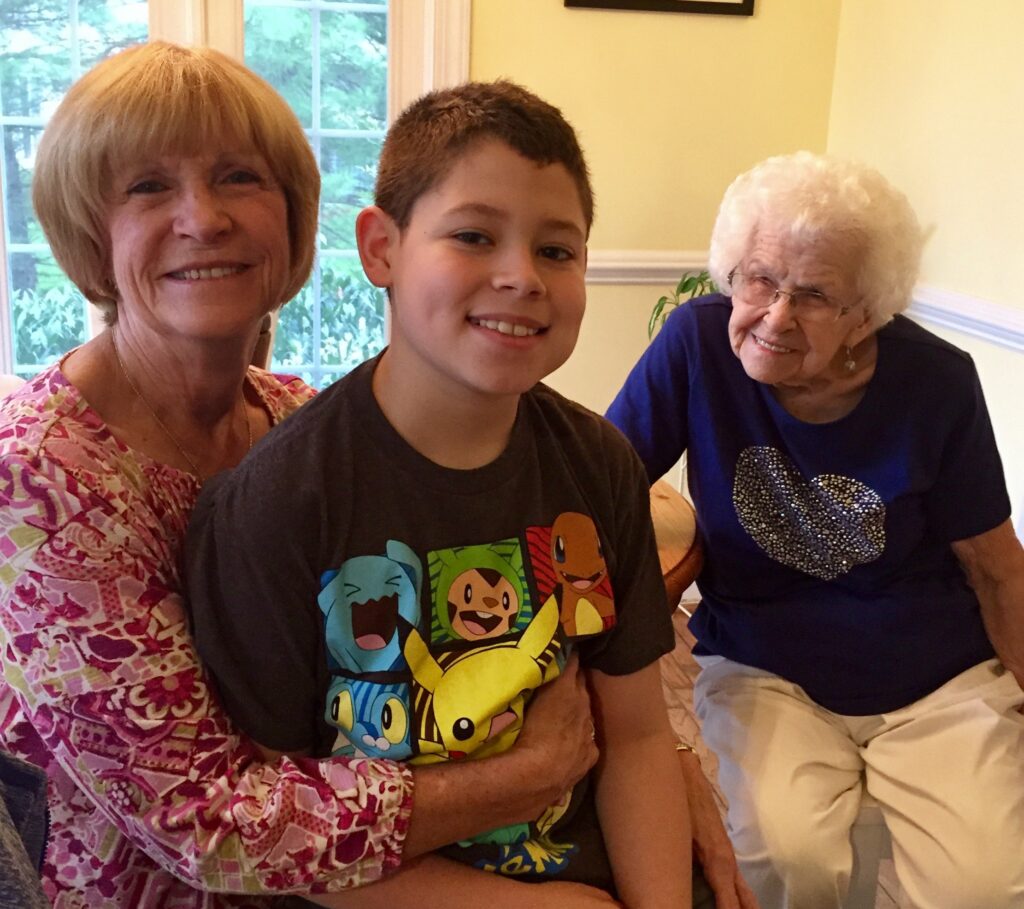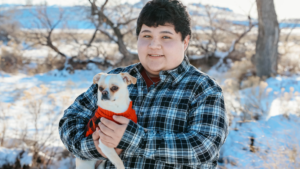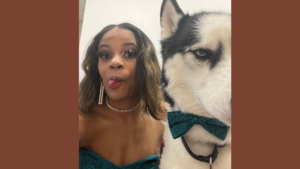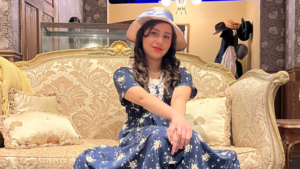This guest post is by Caden Hinchman, a young man who attends the University of Delaware. He is an advocate for the Spring 2025 Making a Difference Autism Scholarship via the nonprofit KFM Making a Difference started by me, Kerry Magro. I was nonverbal till 2.5 and diagnosed with autism at 4 and you can read more about my organization here.
Autistics on Autism the Next Chapter: Stories You Need to Hear About What Helped Them While Growing Up and Pursuing Their Dreams was released on Amazon on 3/25/25 and looks at the lives over 75 Autistic adults. 100% of the proceeds from this book will go back to supporting our nonprofits many initiatives, like this scholarship program. Check out the book here.
There’s a story my mom recently told me about when I was 3. My mother works at a chiropractic office and has a variety of patients with different careers and interests. One of her patients was a school psychologist, and my mom was mentioning me while treating her. She was discussing how I had a significant interest in space, even to the degree where I could name most of the moons on Jupiter and facts about them. According to my mom, the psychiatrist mentioned that there was a chance that I had Asperger’s because of how deep my interest was, but my mom shrugged it off at the time. She just believed I was smart.
This was one of the early signs that I had autism, even if nobody had recognized it at the time. As I grew up, more and more signs began to show themselves, each being more difficult to look past.
The next sign my parents began to notice was how difficult it was for me to socialize. I tend to keep to myself, and it can be a challenge for me to try to interact with others. I realized how deep this went when I began thinking back on how I met people I know, and a majority of the friendships I have today were formed because a friend of mine introduced me to someone else. I can create long-lasting friendships with others, but it’s difficult for me to make new friends or socialize with people I don’t know.
A third symptom my parents observed was my repetitive behaviors. I often bounce my foot up and down, mess with whatever I’m holding in my hand, or even just pace when I’m thinking about something. At the time, they saw it as me keeping myself entertained, but looking back they recognize how many things I did could’ve been seen as stimming.
These were the three general things that, while they pointed to me having autism, weren’t noticeable enough for my parents to get a diagnosis. My parents thought I had ADHD (which I was also later diagnosed with) but assumed that it was negligible since they didn’t want me on medications.
And to an extent, it was. That changed in middle school.
As the work started piling up and the classes started getting more intense, I struggled to keep up. I would realize I was getting distracted, try to focus on the assignment again, and then realize I was zoning out a second time a few minutes later. This led to me not hearing important instructions or struggling to hand in assignments on time, something that upset both me and my parents.
This made me begin to feel a sense of self-doubt. I didn’t understand why I was so behind, why this new environment was so stressful, and how I couldn’t keep up with others. For my mom, it stressed her out so much she had to stop looking at my grades. I had little issues with my grades in elementary school, but in an environment that was completely new with people I didn’t know well and many more classes than I was used to, I struggled greatly without accommodations.
These issues were only made worse by the Coronavirus pandemic, which hit right in the middle of my 7th-grade year. It reset a lot of the progress I had made in trying to be social, completely threw off my schedule, and I constantly felt understimulated inside my house. The pandemic was easily the hardest period of my life; there were times when the stress of doing so much work combined with my inability to focus made me want to just give up. Despite the challenges, I kept persevering, and made it through both the pandemic and middle school.
Transitioning into high school, the schedule was much more accommodating. I had to take fewer classes at a time, and these classes were much longer than they had previously been. The work was also more manageable as a result of having fewer classes, meaning I was able to keep track of it better and not miss anything. On top of that, I had formed connections with people at this point, and slowly regained my social skills.
At this point, I began to suspect I may have autism. Over the years, I’ve met a lot of people who shared similar behaviors and stories to me, and they had been previously diagnosed with ASD. They suggested I get a diagnosis for ASD and ADHD, as it would give me accommodations I may need for school. My parents eventually came to the same conclusion, and we were able to set up an appointment with a psychiatrist. A few weeks later, we got a reply from them, and I was diagnosed with ASD, ADHD, and Generalized Anxiety Disorder.
Getting a diagnosis was easily one of the best decisions my family has made. In a way, it was like the last puzzle piece fitting together. Everything I didn’t understand about myself made so much more sense, and it felt like I finally had a reason why I was the way I was. I didn’t have to feel ashamed of “not being good enough.” I could see myself as someone who was able to overcome so many barriers to get where I was and finally have the diagnosis I would need.
One of the major questions I’ve received since getting my diagnosis was “Does this change anything about how you see yourself?” Looking back on that story from when I was 3, It made me understand that this diagnosis changes nothing about me. If anything, it completes the person that was already there to begin with.
Kerry Magro, a professional speaker and best-selling author who is also on the autism spectrum started the nonprofit KFM Making a Difference in 2011 to help students with autism receive scholarship aid to pursue a post-secondary education. Help us continue to help students with autism go to college by making a tax-deductible donation to our nonprofit here.
Also, consider having Kerry, one of the only professionally accredited speakers on the spectrum in the country, speak at your next event by sending him an inquiry here. If you have a referral for someone who many want him to speak please reach out as well! Kerry speaks with schools, businesses, government agencies, colleges, nonprofit organizations, parent groups and other special events on topics ranging from employment, how to succeed in college with a learning disability, internal communication, living with autism, bullying prevention, social media best practices, innovation, presentation best practices and much more!














